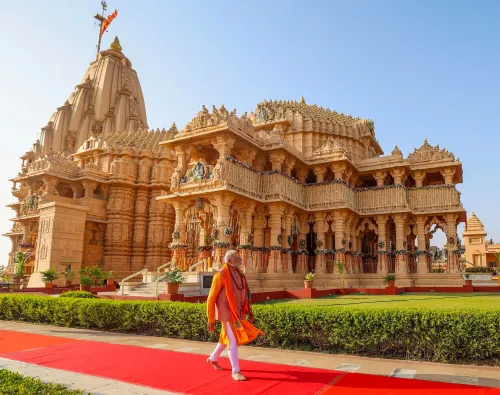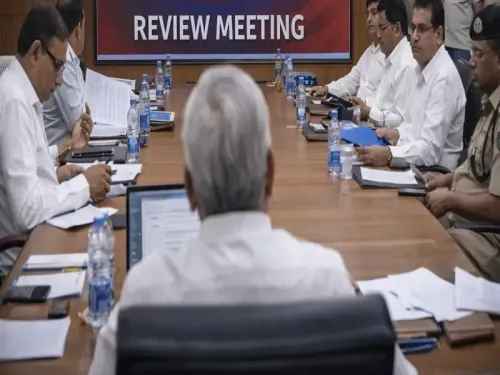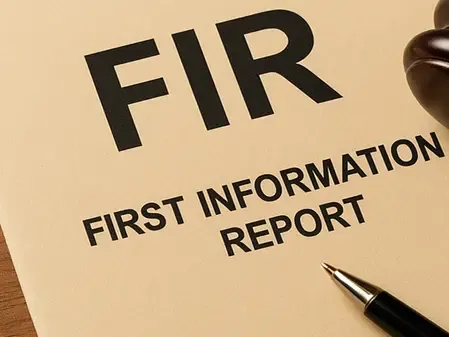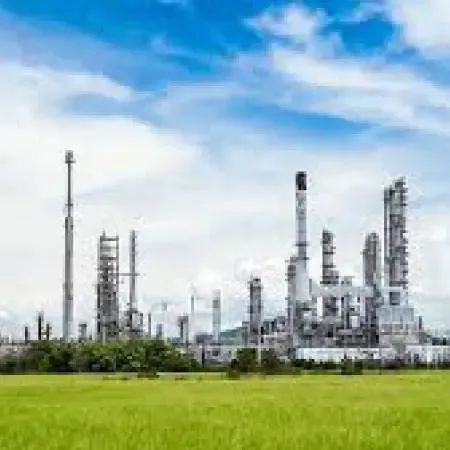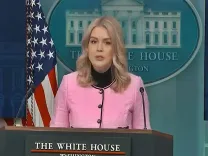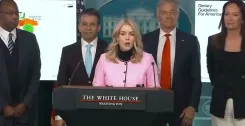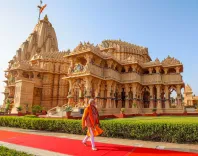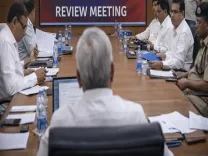Why Are Nationwide Strikes by Trade Unions Peaceful Except in West Bengal and Tamil Nadu?
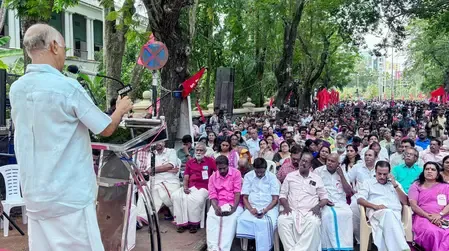
Synopsis
Key Takeaways
- Nationwide strike led by Trade Unions.
- Protests remained mostly peaceful.
- Clashes reported in Tamil Nadu and West Bengal.
- Key demands include repeal of labour codes and wage increases.
- Impact felt across various sectors.
New Delhi, July 9 (NationPress) A general strike swept across India on Wednesday, as over ten central Trade Unions, supported by farmer associations and rural worker groups, initiated a nationwide shutdown to protest against the government's alleged "anti-worker, anti-farmer, and pro-corporate" policies.
The 'Bharat Bandh' significantly disrupted essential services in various states.
While the protests remained largely peaceful nationwide, Tamil Nadu and West Bengal experienced clashes between demonstrators and police, leading to several detentions.
This coordinated action involved major Trade Unions like the All India Trade Union Congress (AITUC), Indian National Trade Union Congress (INTUC), Centre of Indian Trade Unions (CITU), Hind Mazdoor Sabha (HMS), Self-Employed Women's Association (SEWA), Labour Progressive Federation (LPF), and United Trade Union Congress (UTUC), alongside prominent farmer groups such as the Samyukta Kisan Morcha and public sector workers from the Railways, NMDC Ltd, and steel industries.
The unions are standing against four new labour codes that were recently approved by Parliament, arguing that these measures undermine workers' rights, restrict the right to strike, extend working hours, and reduce employer accountability.
Protesters are insisting on the repeal of these codes, the establishment of a minimum monthly wage of Rs 26,000, and the assurance of equal pay for equal work.
They are also advocating for the cessation of public sector privatisation, the limitation of job outsourcing, and the elimination of contract employment practices, which they believe jeopardize job security and fair remuneration.
Consequently, sectors like banking, insurance, postal services, coal mining, public transport, and industrial production faced significant disruptions across the country. However, schools, private offices, and the majority of train services continued to operate, albeit with some isolated interruptions.
In Odisha, the strike coincided with a separate protest from the bus and truck drivers' association, exacerbating the situation.
Transportation services in the state were severely impacted as discussions with the government failed to resolve the deadlock. The drivers are seeking a written commitment for the fulfillment of their long-standing demands.
In Rajasthan, a diverse coalition of workers, including those from insurance, postal, BSNL, income tax, coal, Defence, Anganwadi, ASHA, and Mid-Day Meal programmes, participated in the protest. Medical representatives and agricultural workers also joined the Bharat Bandh.
West Bengal experienced scattered disruptions, with rail and road blockades reported in areas such as Lalgola, Durgapur, Domjur, and Bandel. In Kolkata's Jadavpur and Lake Town, tyres were set ablaze, halting traffic.
Minor confrontations occurred between law enforcement and protesters as police attempted to clear roadways and rail tracks. Rail services from the Sealdah division were also impacted.
In Kerala, a state governed by the Left, the strike saw nearly complete adherence. Shops, offices, markets, and educational institutions were closed.
Public transport, including buses operated by the Kerala State Road Transport Corporation (KSRTC), remained off the roads despite assurances from the Transport Minister.
CITU-affiliated workers at some depots obstructed efforts to run buses, resulting in passenger chaos.
In one notable incident in Adoor, a bus driver wore a helmet while driving amid tensions.
In Tamil Nadu, approximately 50 Left-wing activists attempted to block trains at Korukkupet in Chennai, demanding wage increases and measures for price control.
Protests also emerged from Guindy and Anna Salai, with police detaining some individuals following brief altercations.
Puducherry experienced a total shutdown as trade unions and parties from the INDIA coalition led the protest with a 21-point demand list, including the repeal of new labour laws and initiatives to combat youth unemployment.
In Punjab, contract workers from Punjab Roadways, PUNBUS, and PRTC initiated a three-day strike, staging protests outside depots, including in Pathankot.
The workers are urging the government to address their concerns promptly.
Bihar saw the Opposition, which is protesting against the Special Intensive Revision (SIR) of voter rolls, also criticize the Centre's anti-labour policies.
Daily life was disrupted as road blockades and burning tyres were reported near Danapur Court in Patna. Protesters also focused on alleged manipulation in the voter list revision, claiming it would disenfranchise marginalized communities. Opposition leaders condemned the Centre, accusing it of orchestrating the move through the Election Commission.
This mobilization represents the latest in a series of large-scale worker protests, following similar actions in 2020, 2022, and 2024.


